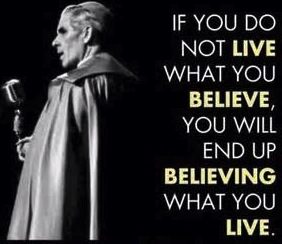For the moment all discipline seems painful rather than pleasant; later it yields the peaceful fruit of righteousness to those who have been trained by it. (Hebrews 12:11)
One of the greatest gifts God gives us here in South Texas during the early Spring is the beautiful Mountain Laurel trees. Blooming anywhere from late February to early March, the vibrant flowers burst from the trees in all their deep, purple richness. The beauty of the blossoms is matched by their sweet aroma that permeates the air wherever the trees may be found. The Mountain Laurels bloom before most other flowers later in the Spring, serving as a preview of the beauty and warmth still to come in April and May.
It seems a shame though that such beauty comes just once a year, and for only a couple of short weeks. Now, as the ides of March have passed, the bright purple pedals have either faded or fallen off all together. To one looking at it for the first time, the Mountain Laurel looks like just another tree—one that will not produce its beauty again for a whole year. But in all these ways, it is fitting that the blooming and fading of the Mountain Laurels happens during the season of Lent.
For just like the purple vestments worn by priests during Lenten Masses, the purple flowers of the Mountain Laurels remind us that this is a penitential season of preparation for the coming passion, death and resurrection of our Lord. Like the foretaste of the full beauty of Spring to come, the blooming Mountain Laurels give a preview of the full glory and divinity of the Resurrected Christ on Easter morning. Yet, as the flowers fade and disappear almost as quickly as they came, we are reminded that Lent is not quite over, and some amount of painful discipline remains before we are ready to celebrate the Resurrection and the "peaceful fruit of righteousness" to come. And as we look upon the Mountain Laurel now in all its ordinariness, bereft of the beauty of its flowers, we remember that it will be an ordinary tree upon which our Lord will be crucified on Good Friday—an ordinary tree made beautiful by the incarnate Word of God that hung upon it to conquer sin and death so as to open the gates of heaven for us all.
In his recent book, "The Power of Silence", Cardinal Robert Sarah writes: "God achieves everything, acts in all circumstances, and brings about our interior transformations. But he does it when we wait for him in recollection and silence." As we pass through these last days of Lent into the coming Holy Week, let us persevere to wait for God in recollection and silence, thankful for the preview of His glory He has already given us, willing to allow God to continue transforming us interiorly, so that on Easter morning we may exclaim with confidence and joy, "He is Risen!"
God love you.





